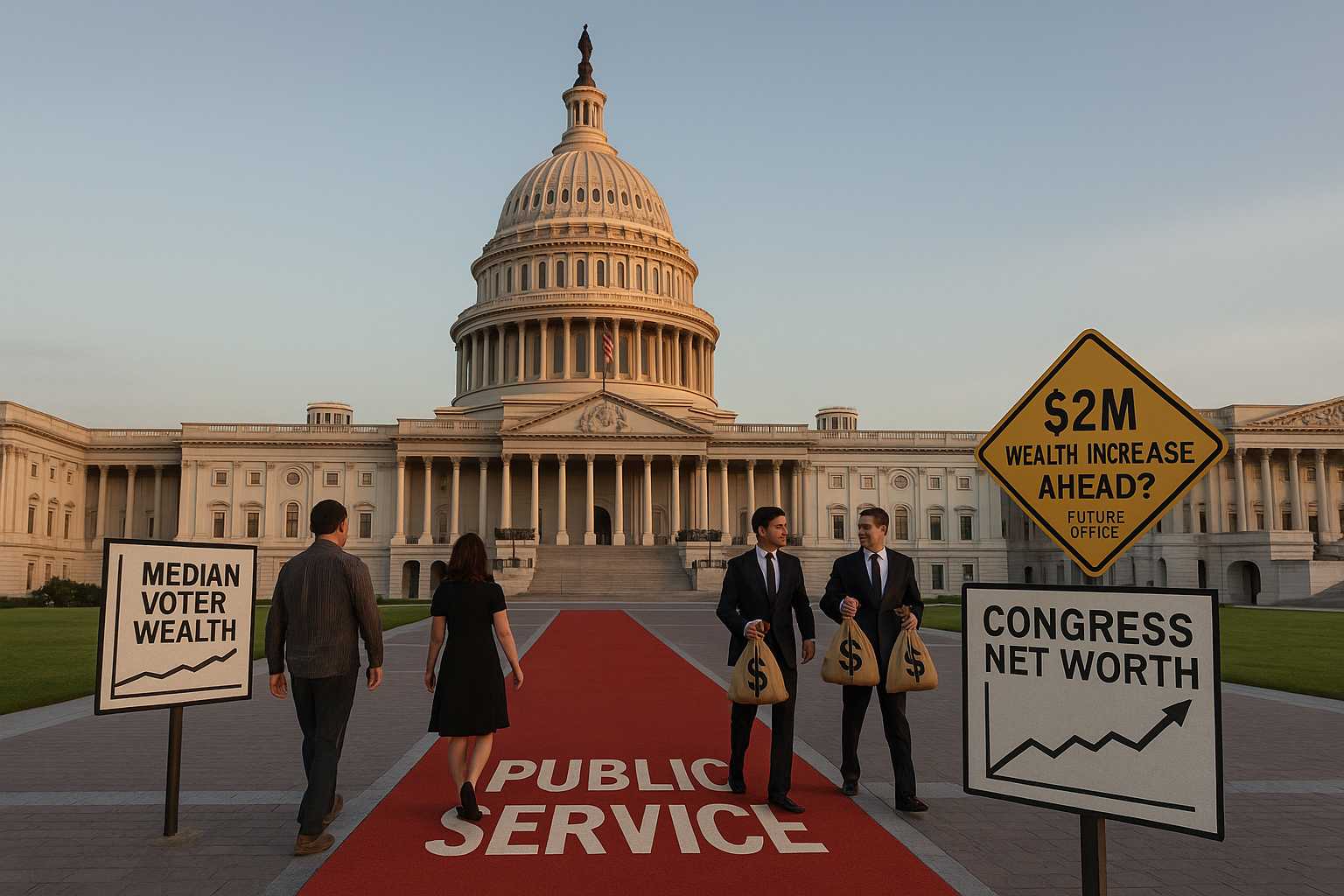In the United States, members of Congress are elected to represent the people — not to become millionaires. Yet today, more than half of U.S. Senators and Representatives are millionaires, and many have seen their net worth skyrocket while serving in office. This trend raises a pressing question: Are members of Congress enriching themselves while ignoring the financial burdens of the very people they’re supposed to serve?
🧾 Congressional Wealth by the Numbers
According to recent data, over 50% of Congress are millionaires. In contrast, only about 1% of the general U.S. population reaches millionaire status. The median net worth of a lawmaker is now over $1 million, and in many cases, that figure increases substantially during their tenure.
A Ballotpedia report found that between 2004 and 2012:
-
The median net worth of American households declined by nearly 1% annually.
-
Meanwhile, the median wealth of members of Congress increased by 1.55% annually.
-
Altogether, Congress saw a total net worth increase of $316.5 million in just eight years.
🏛️ Members with Notable Wealth Growth
Here are some key examples of lawmakers who have grown their fortunes by $1 million or more while in office:
✅ Senator Rick Scott (R-Florida)
-
Net worth: $549 million
-
Made his fortune in healthcare before entering politics; continued to grow wealth during his time in the Senate.
✅ Senator Mark Warner (D-Virginia)
-
Net worth: $248 million
-
A former telecom entrepreneur who co-founded a venture capital firm before office; his assets have continued to rise.
✅ Representative Darrell Issa (R-California)
-
Net worth: $460 million
-
Former CEO of a car alarm company; remains one of the wealthiest members of Congress.
✅ Speaker Nancy Pelosi (D-California)
-
Net worth: Estimated at $120 million
-
Substantial wealth growth due to stock investments and real estate, often managed by her husband.
✅ Senator Richard Blumenthal (D-Connecticut)
-
Net worth: Over $100 million
-
Inherited wealth from real estate holdings; his net worth has grown significantly during his tenure.
✅ Senator John Hoeven (R-North Dakota)
-
Net worth: $37 million
-
Former bank executive; financial disclosures reveal consistent asset growth.
✅ Senator Mitch McConnell (R-Kentucky)
-
Net worth: $22 million
-
His wealth increased dramatically after his wife, Elaine Chao, received a sizable inheritance.
✅ Representative Dan Goldman (D-New York)
-
Net worth: $253 million
-
Former prosecutor and Levi Strauss heir; entered politics already wealthy and remains among the top.
🧨 Why This Is a Problem
When elected officials gain millions while in office — often through stock trading, insider access, or favorable legislation — it undermines the integrity of representative democracy.
-
Conflicts of Interest: Legislators may push policies that benefit their portfolios, not their constituents.
-
Erosion of Trust: Americans grow more cynical about government when it appears lawmakers profit from their positions.
-
Lack of Accountability: There are minimal safeguards to ensure lawmakers don’t use their roles for financial gain.
🗳️ A Proposal for Reform
To restore trust and ensure Congress works for the people, iVoteMyVote proposes the following policy:
“Any member of Congress (or their spouse) who increases their net worth by over $2 million while in office shall be precluded from seeking further political office.”
Why this matters:
-
✅ Encourages transparency and ethics
-
✅ Deters use of office for personal enrichment
-
✅ Helps ensure public service remains just that — service, not self-dealing
💬 Final Thoughts
The accumulation of wealth by lawmakers — especially while ordinary Americans struggle with inflation, debt, and stagnant wages — demands real accountability. Public office should not be a gateway to private fortune. It’s time we demand higher standards from those who govern.
It’s your vote. It’s your voice. It’s your future.



